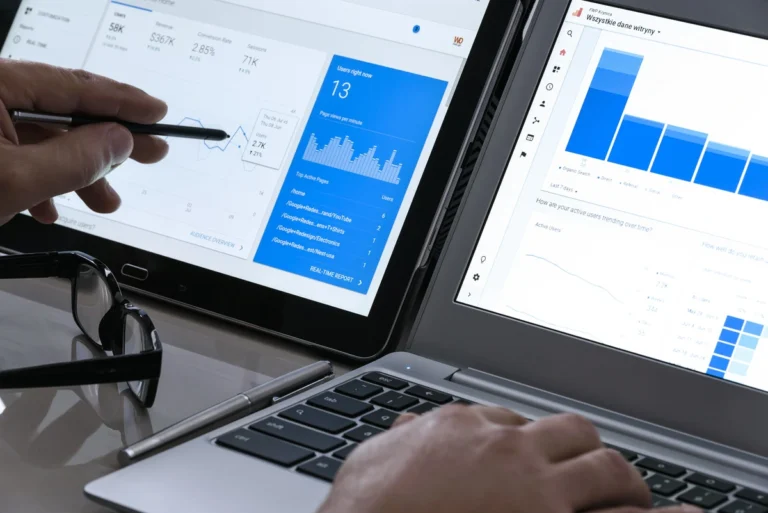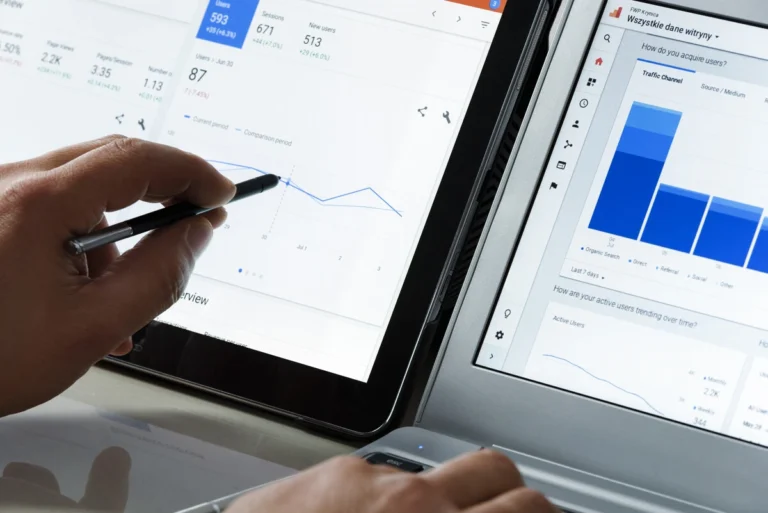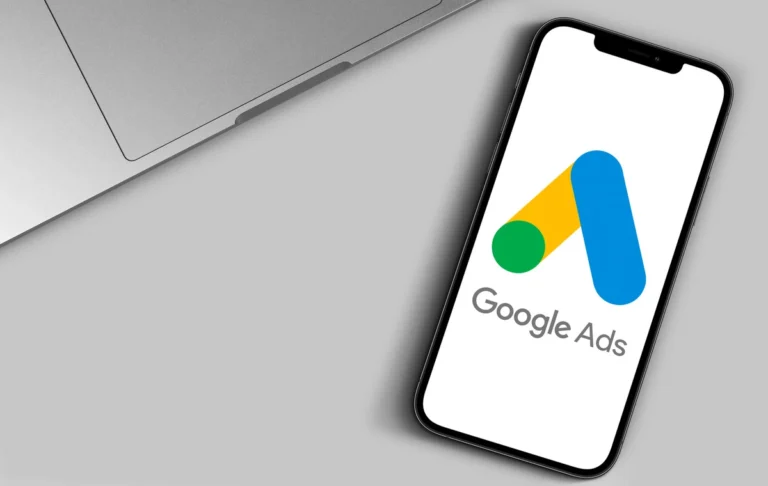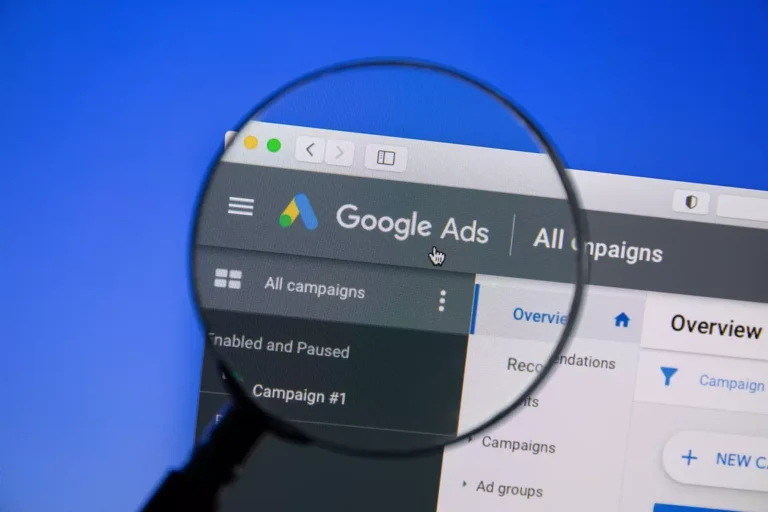Can Doctors Advertise On Google?
What Industry Is Best For PPC? Doctors and medical practices often question whether they can advertise their services on Google Ads, previously known as Google AdWords. The short answer is yes; it is entirely possible for medical professionals to leverage Google’s vast advertising network to reach potential patients effectively.
Overview of Google Ads for Medical Professionals
Google Ads offers a powerful platform that allows doctors to connect with individuals searching for healthcare-related services. By targeting specific keywords and demographics, medical practices can appear prominently in search results, on the Google Display Network, and even on YouTube.
Incorporating Google Ads into a digital marketing strategy can be crucial for medical professionals to enhance patient engagement and efficiently connect with potential patients.
Adherence to Google’s Advertising Policies
However, it is crucial for medical professionals to adhere to Google’s advertising policies. This includes guidelines on misleading information, prohibited content, and legal requirements specific to healthcare advertising. Google ensures that ads meet high standards for accuracy and trustworthiness, which is especially important in the medical field.
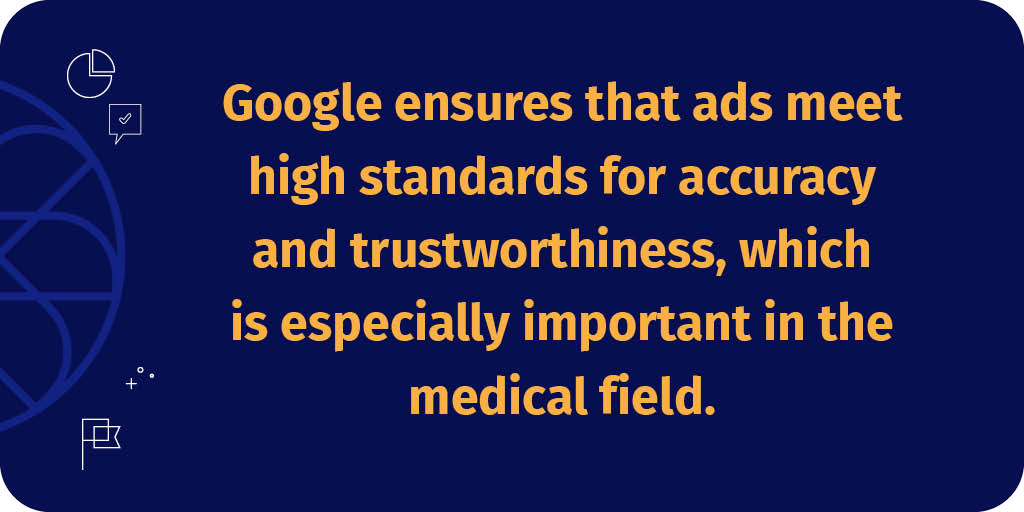
Types of Ads Suitable for Doctors
Various ad formats can be particularly effective for doctors. Selecting the right campaign type for a Google Ad is crucial; search ads can capture patients’ interest when they are actively looking for medical services. Display ads can raise awareness of a practice. Video ads can be used to provide insights into a doctor’s expertise and clinic environment, fostering trust among potential patients.
To maximize your reach while complying with Google’s guidelines, consider consulting with a digital marketing agency experienced in healthcare sector advertising, such as Bohu Digital, to ensure your campaigns are both effective and compliant.
Benefits of Google Ads for Doctors
Google Ads offers numerous benefits for doctors and medical practices looking to increase their online presence and attract new patients. Here are some of the key advantages of using Google Ads for doctors:
Increased Visibility and Patient Reach
Google Ads allows doctors to significantly boost their online visibility and reach potential patients who are actively searching for medical services on Google. By targeting specific keywords and demographics, doctors can ensure that their ads are seen by the right people at the right time. This targeted approach can lead to a substantial increase in website traffic, phone calls, and new patient appointments. With Google Ads, medical practices can effectively connect with individuals who are in immediate need of healthcare services, thereby expanding their patient base.
Cost-Effectiveness and ROI
One of the standout benefits of Google Ads is its cost-effectiveness. Operating on a pay-per-click (PPC) model, Google Ads ensures that doctors only pay for ads that are clicked on by potential patients. This makes it a highly targeted and efficient way to reach new patients without wasting resources on uninterested audiences. Additionally, Google Ads provides measurable results, allowing doctors to track the effectiveness of their ad campaigns and calculate the return on investment (ROI). This transparency enables medical practices to make informed decisions and optimize their advertising strategies for maximum impact. Find out how much should you pay for PPC?
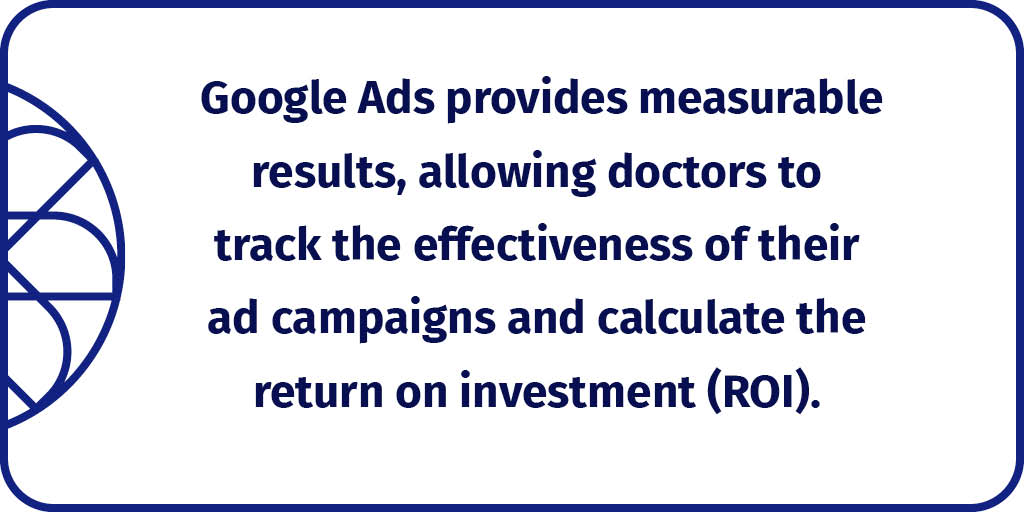
How To Target Doctors On Google Ads
Effectively targeting doctors on Google Ads requires a strategic approach that involves managing a well-structured Google Ads campaign, identifying your audience, setting up efficient campaigns, selecting impactful keywords, and leveraging Google’s robust suite of tools for precise audience segmentation.
Identifying the Target Audience
The first step in targeting doctors is to have a clear understanding of your target audience. Define the specific medical professionals you aim to reach, such as general practitioners, specialists, or surgeons. Understand their needs, behaviors, and preferences to tailor your Google Ads campaigns effectively.
Setting Up Google Ads Campaigns
Once you have identified your target audience, the next step is setting up your Google Ads campaigns. Create campaigns that highlight your unique value proposition and align with the goals of your medical practice. Utilize various ad formats such as text ads, video ads, and display ads to engage with your audience across different channels. Additionally, using multiple ad groups for different practice areas can enhance the ad’s Quality Score by aligning landing pages with specific keywords tailored to the interests of potential clients.
Effective Keywords and Audience Segmentation
Keywords play a crucial role in the success of your campaigns. Conduct thorough keyword research to identify highly relevant and competitive keywords that your target audience is likely to use. Employ audience segmentation to further narrow down your audience based on factors like location, specialization, and interests to ensure that your ads reach the most relevant doctors.
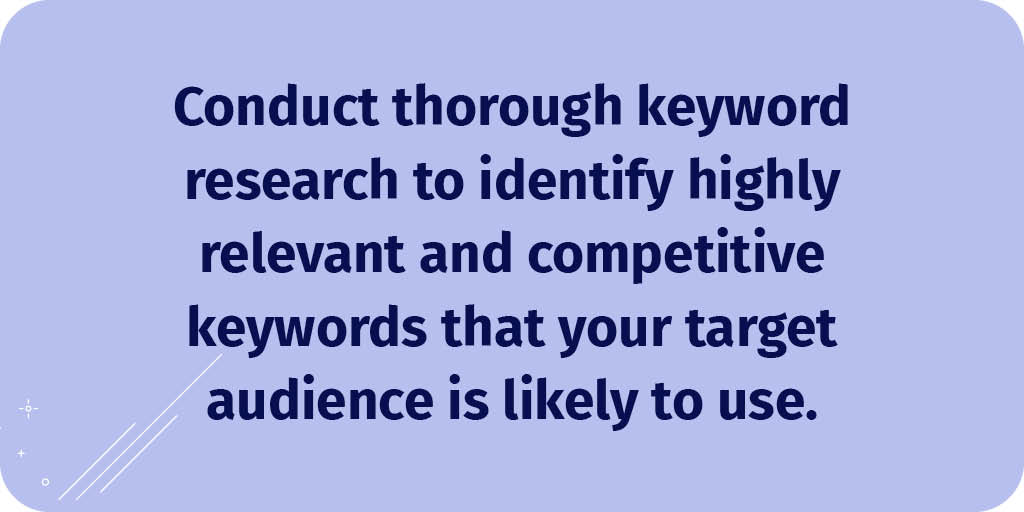
Utilizing Google Tools for Precise Targeting
Google offers a variety of tools that can enhance the precision of your targeting efforts. Tools like Google Analytics, Google Ads Editor, and Keyword Planner provide valuable insights and allow you to fine-tune your campaigns for maximum efficiency. Leverage these tools to monitor campaign performance, adjust bids, and optimize your ad spend.
By combining these strategies, you can effectively target doctors on Google Ads, ensuring that your advertising efforts deliver the desired results.
Optimizing Google Ads Campaigns
To get the most out of Google Ads, it’s essential to optimize campaigns regularly. Here are some tips for optimizing Google Ads campaigns for doctors:
Conversion Tracking and Optimization
Conversion tracking is a crucial aspect of Google Ads optimization. By tracking conversions, doctors can see which ads, keywords, and landing pages are driving the most new patient appointments and adjust their campaigns accordingly. This can include optimizing ad copy, targeting, and bidding strategies to improve conversion rates and ROI.
To optimize conversion tracking, doctors can use Google Ads’ built-in conversion tracking features, such as phone call tracking and form submission tracking. These tools allow doctors to monitor the number of new patient appointments generated from their Google Ads campaigns and make data-driven decisions to enhance their campaigns. By regularly reviewing and adjusting their strategies based on conversion data, medical practices can improve their online visibility, attract new patients, and drive more revenue for their practice.
Are Google Ads HIPAA Compliant?
When it comes to digital marketing within the healthcare sector, ensuring Hipaa compliance is paramount. The Health Insurance Portability and Accountability Act (HIPAA) sets strict guidelines for managing and protecting patient information, and any marketing activities must comply with these regulations.
Understanding HIPAA Regulations in Digital Marketing
HIPAA regulations revolve around the protection of sensitive patient information, dictating how data can be shared and advertised. For entities like medical practices and doctors, adherence to these regulations isn’t optional — it is a legal necessity. In digital marketing, this means implementing stringent measures to prevent unauthorized access to patient information and ensuring that all data collection and processing are handled securely.
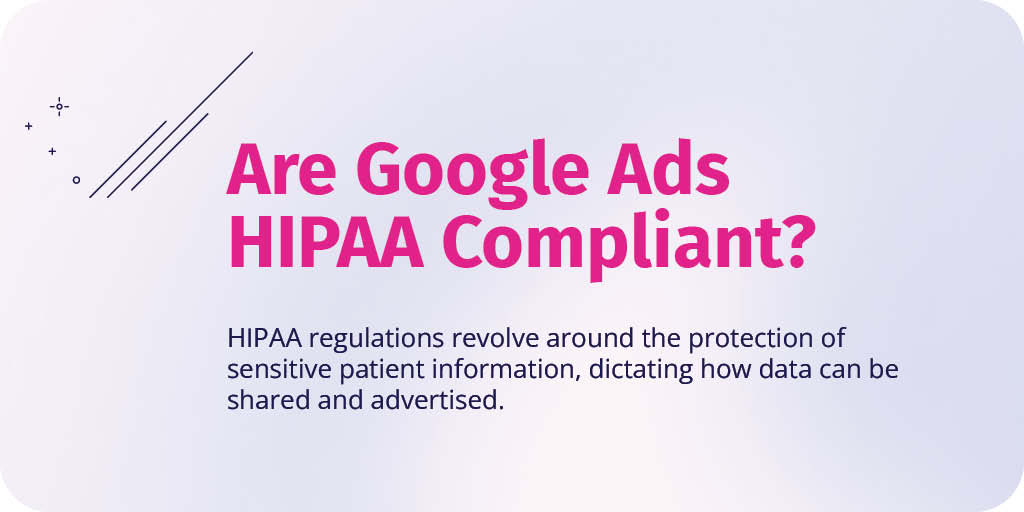
Google Ads Compliance Measures
Google Ads provides a platform that can be used in a HIPAA-compliant manner, but advertisers must carefully plan and execute it. Google has explicit policies that prohibit the advertising of certain medical products and services that might compromise patient privacy. Additionally, advertisers must avoid using keywords that directly target sensitive health conditions or personal information.
Using Google Ads necessitates the anonymization of personally identifiable information and adherence to Google’s stringent advertising policies. For example, ads cannot directly target users based on their assumed medical conditions unless explicitly allowed by Google. Additionally, ensuring that ad extensions and landing pages do not capture sensitive information without proper safeguards in place is essential.
Best Practices to Ensure Patient Privacy
To maintain patient privacy while using Google Ads, healthcare marketers should follow best practices. This includes utilizing tools like Google Ads Customer Match responsibly to ensure data is used in compliance with Hipaa regulations. Regular audits and consultations with legal professionals who specialize in digital healthcare marketing can help ensure ongoing compliance.
Furthermore, ensuring that advertisements and their corresponding landing pages employ encrypted connections (SSL certificates) and do not collect sensitive information without explicit consent helps maintain privacy standards. Additionally, creating comprehensive privacy policies and making them accessible to users is crucial.
In summary, while Google Ads can be used to enhance the reach of medical practices, strict adherence to Hipaa compliance and patient privacy measures must be maintained. Doing so not only helps in avoiding legal complications but also builds trust with potential patients who value their privacy.
Take the first step towards growth by scheduling a free consultation with Bohu Digital today.







































































